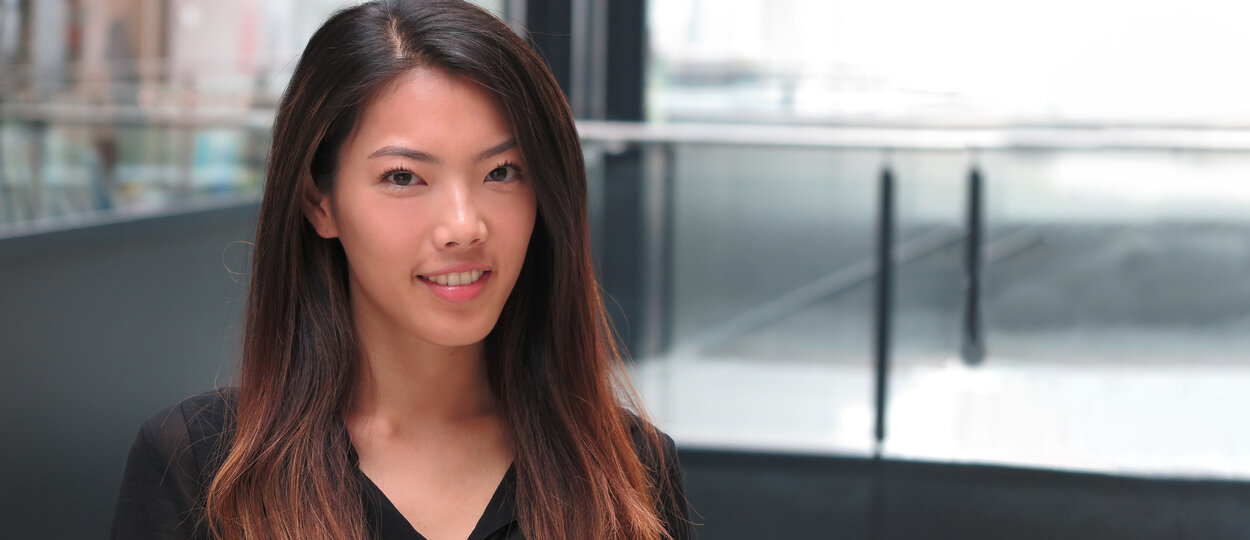What is your academic background and current area research?
I completed my Honors BSc. in pharmaceutical chemistry and immunology at University of Toronto before joining the Department of Pharmaceutical Sciences as a Ph.D. student for Dr. Raymond Reilly’s lab. My research focuses on the delivery of radiolabeled antibodies to treat HER2-positive breast cancer brain metastases. Although targeted therapies are highly effective for systemic HER2-positive breast cancer, they are not able to reach and treat brain metastases due to the presence of the blood-brain barrier. Therefore, developing a potent therapeutic that could be delivered to the brain of patients with brain metastases could significantly prolong their survival and improve their quality of life.
What led you to your supervisor’s research group?
During my undergraduate studies, I developed an interest in cancer research and came across Dr. Raymond Reilly’s laboratory, whose research focused on discovering new radionuclide-based imaging probes for characterizing the molecular properties of cancer, as well as developing molecularly-targeted radiotherapeutics for treatment of cancer. Not only did his research mission align with my interests, but the emphasis on translational research is very exciting. Recently, his lab built a first-in-Canada Good Manufacturing Practices (GMP) facility to prepare radiolabeled antibodies for clinical trials.
What are some of the challenges you had to overcome within your research?
One of the challenges I overcame during my graduate research is the optimization of the dose of the radionuclide Actinium-225 for the treatment of breast cancer cells. Due to its highly potent nature and the fact that it has never been investigated in our research lab before, determination of its optimal dose to study its effect on breast cancer cell survival has required an extensive literature search as well as repeated experimental trial and error. Another challenge that I am currently trying to overcome is finding an effective strategy to deliver monoclonal antibodies to the brain, while minimizing systemic toxicities that Actinium-225 radiolabeled to antibodies can cause. While challenging, I am confident an appropriate strategy will be found.
How do you see your current research playing a role in your career?
I believe my current research in developing treatments for cancer by labelling targeted antibodies by therapeutic radionuclides, also known as radioimmunotherapy (RIT), will play a large role in my future career. Although there are only a few approved RIT agents in the market, I believe the past and current preclinical and clinical successes of RIT research and unmet medical needs from conventional cancer therapeutics could increase the value of the global RIT market with more RIT agents being approved for clinical use in the future. My experience in preclinical RIT research can prepare me for a career in this field.
What do you like to do when you are not working on research?
The Graduate Department of Pharmaceutical Sciences offers many opportunities for students to be involved in extracurricular groups, and this has been a great way to bring a sense of community for students in the program as well as enjoying my time outside of the lab. Since joining the graduate program in 2019, I have had the opportunity to be an executive for the American Association of Pharmaceutical Sciences (AAPS) Student Chapter at the University of Toronto and the Pharmaceutical Sciences Graduate Student Association. Currently, I am the chair of the Center of Pharmaceutical Oncology Seminar and Symposium organizing committee as well as the networking coordinator of the Pharmaceutical Sciences Graduate Student Association (PSGSA). Through these roles, I have gained experience in academic event planning, invitations of academic speakers in the field of pharmaceutical oncology, as well as organizing networking opportunities for students with professionals in academia and industry. It has also been a great way for me to interact with individuals that are outside of my lab, which was difficult to do during the COVID-19 pandemic!
How have you found life in Toronto?
I am an international student, and before I moved to Toronto, I spent my childhood and teenage years in Japan, Hong Kong, and Thailand. Although the transition to a location with a colder climate has been a little challenging, I have discovered fun winter activities and sports such as ice-skating, which are much more accessible and popular here in Toronto! I would describe the people here as very kind and welcoming, which has made my experience in Toronto very enjoyable. I believe the people in Toronto really are the heart of the city.
More News
Image

PharmD student receives Volunteer Award from Life Sciences Ontario
Simonne Rauch is recognized for her contributions to ambassador and mentorship programs.
Read More
Image

Celebrating Excellence: Mike Folinas Receives 2024-25 Exemplary U of T Ambassador Award
Mike Folinas has received the 2024–25 Exemplary U of T Ambassador Award for his outstanding service and leadership in supporting the academic community.
Read More
Image

Structural biology research takes aim at rare neurodegenerative disease
Rachel Harding leads research to understand protein responsible for Huntington’s disease and advance drug discovery
Read More
